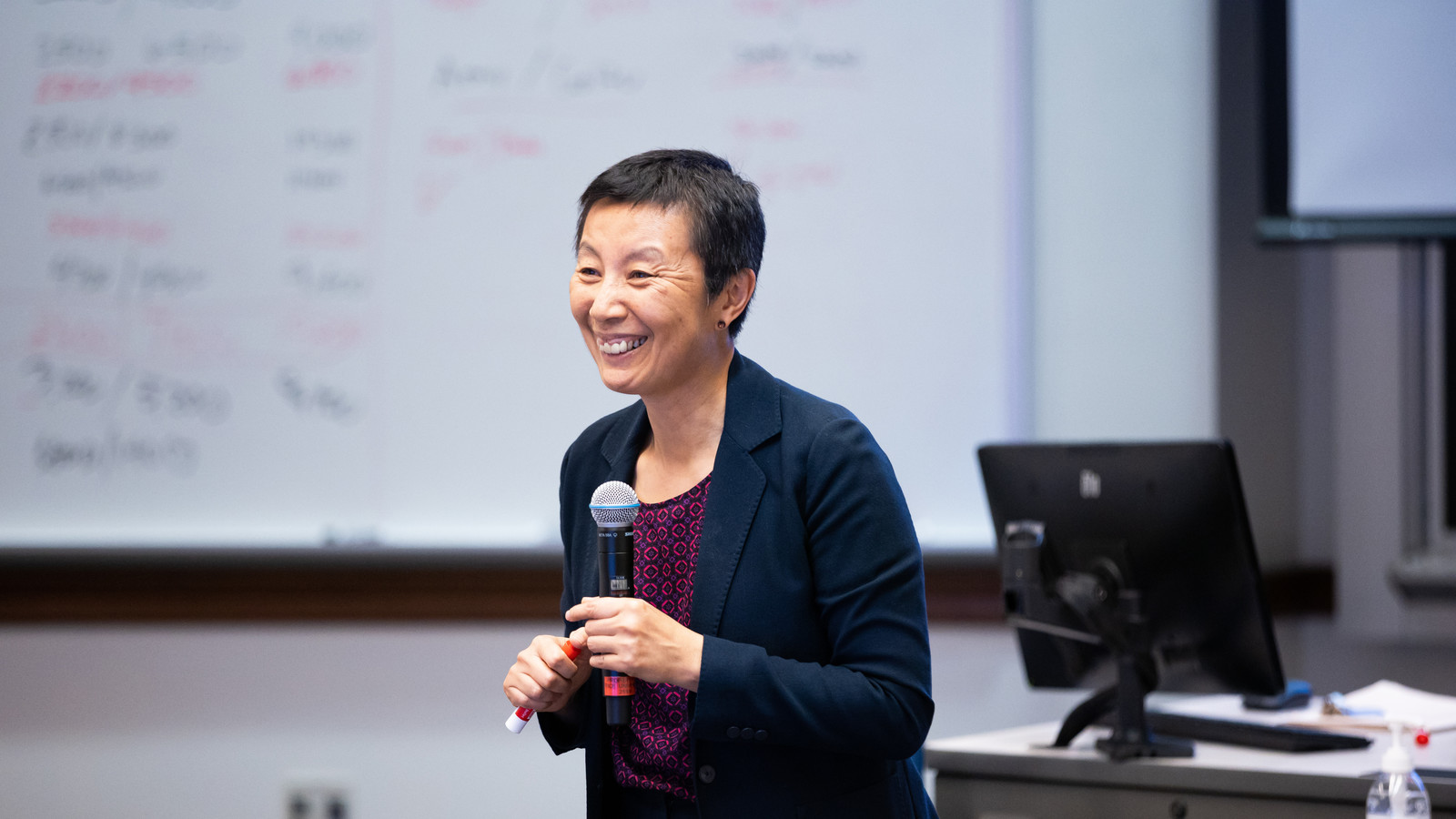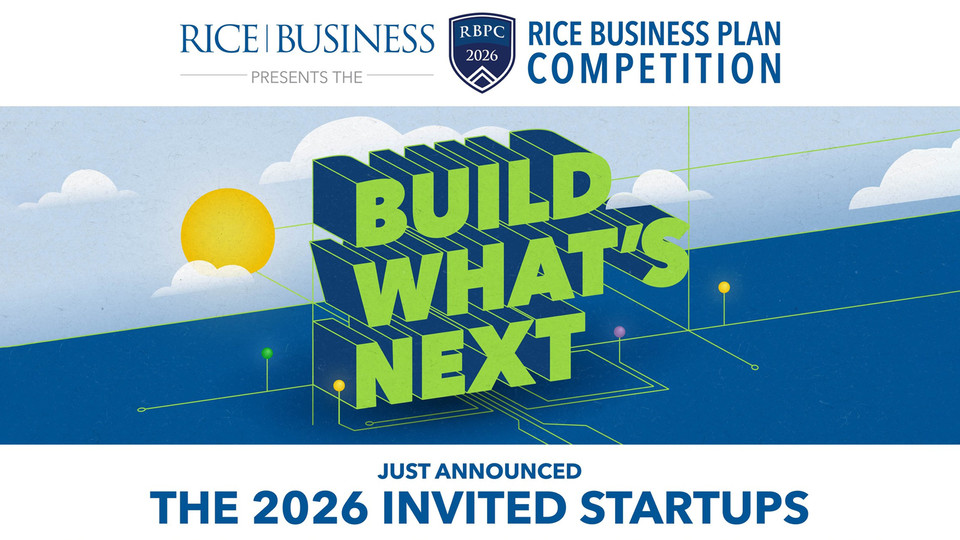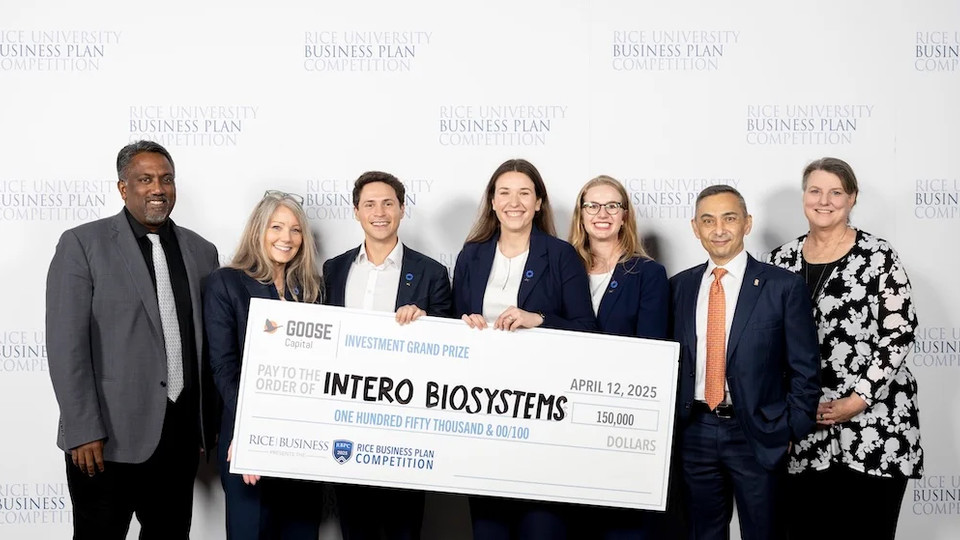
Emerging focus on brain health among several Rice researchers’ expertise

Brain health is a key factor in workforce well-being and organizational success and carries a deep-seated impact on economic development. In growing recognition of the role of the human brain as foundational to economies around the globe — both in terms of the costs associated with brain disease and as individual and collective brain capital — the notion of “brain economy” has emerged as a topic of interest for organizations such as the World Economic Forum, the United Nations General Assembly, the World Health Assembly, G7, the Organisation for Economic Co-operation and Development, UNESCO, UNICEF, the European Commission and the UN Council of Parties.
Rice University is a hub of cutting-edge, multidisciplinary research on the brain. In addition to a critical mass of researchers in the field, Rice is home to entities dedicated to collaborative clinical and scientific research on the brain:
● The Rice Neuroengineering Initiative harnesses Rice’s world-class expertise in neuroscience, engineering and related fields like signal processing, biosciences and nanotechnology to explore neural function and interactions with the brain.
● The Center for Neural Systems Restauration (CNSR), a collaboration between Rice and Houston Methodist, is an interdisciplinary center for neuroscience research and medical treatment innovation designed to bring together scientists, clinicians, engineers and surgeons to tackle complex brain-related medical challenges like stroke recovery, mild traumatic brain injury detection, upper and lower limb mobility restoration, balance and biofeedback training.
● The Neuro-Policy Program at Rice’s Baker Institute for Public Policy leads an interdisciplinary approach to addressing brain health challenges and advancing economic opportunity. The program is at the forefront of pioneering data analysis, empirical research and policy application.
As employers, policymakers, health care providers, educators and other stakeholders continue to engage this topic, Rice experts are ready to offer their insight on scientific and biomedical advancements relevant to brain health.
Policy, leadership and the brain economy
● Harris Eyre is the Harry Z. Yan and Weiman Gao Senior Fellow in Brain Health at the Baker Institute, where he leads its Neuro-Policy Program. With a background in medicine, neuroscience and business, Eyre is an entrepreneur and scholar dedicated to fostering awareness, knowledge, skills, tools and leadership for the brain economy. He works closely with the McKinsey Health Institute and is a member of the Champion’s Cabinet of the Davos Alzheimer’s Collaborative and the Cancer Neuroscience Program at the University of Texas MD Anderson Cancer Center. He also is an adjunct with the University of California, San Francisco.
Brain science and technology
● Behnaam Aazhang is the J.S. Abercrombie Professor of Electrical and Computer Engineering and director of the Neuroengineering Initiative. Aazhang’s research interests are focused on developing noninvasive tools to interface with neurological systems that examine neuronal circuit connectivity through the study of processes such as learning, sleep, seizures and more. His work includes projects dedicated to the development of minimally and noninvasive real-time neuromodulation systems to mitigate disorders such as epilepsy, Parkinson’s disease, depression, obesity and mild traumatic brain injury.
● Valentin Dragoi’s work examines how networks of cortical neurons encode information and how this process influences behavioral decisions in real time using a combination of electrophysiological, behavioral and computational methods. Dragoi is a professor of electrical and computer engineering at Rice, the Rosemary and Daniel J. Harrison III Presidential Distinguished Chair in Neuroprosthetics at Houston Methodist and professor of neuroscience at Weill Cornell Medical College. He also serves as scientific director of the CNSR.
● Caleb Kemere, an associate professor of electrical and computer engineering and bioengineering at Rice, develops novel hardware and machine learning algorithms to understand how information is processed, stored and retrieved in vivo in the mammalian brain. In particular, a key area of Kemere’s focus is to understand how the activity of neural circuits during sleep and other offline periods helps to create stable, useful memories.
● Marcia O’Malley, Rice’s Thomas Michael Panos Family Professor in Mechanical Engineering, researches haptics and robotics with a focus on the design and control of wearable robotic devices for training and rehabilitation from injury such as a stroke. Forging new ways to leverage human-robot collaboration, O’Malley has led the development of robotic hardware and control systems for applications such as skill training in virtual reality; control of remote robots; communication; and movement assistance for workforce safety, dexterity and strength enhancement.
● Jacob Robinson is a professor of electrical and computer engineering and bioengineering at Rice and founder and CEO of Motif Neurotech, a startup focused on developing therapeutic brain-computer interface (BCI) technologies to measure and regulate mental and cognitive states beginning with treatment-resistant depression. Robinson’s research efforts inform the development of next-generation implantable BCIs with improved performance and reduced surgical risk.
● Jerzy Szablowski, assistant professor of bioengineering, works on technologies to noninvasively control and monitor specific brain circuits without wearable or implanted devices. His technologies include synthetic serum markers that can monitor gene expression in the brain with a simple blood test, designer vectors for noninvasive gene delivery to the brain and site-specific therapeutics that can control selected brain circuits to avoid side effects associated with current brain therapies.
Brain health in the workplace
● Margaret Beier, professor and department chair of psychological sciences, examines how motivational and situational components and traits such as cognitive ability and personality are related to intellectual development throughout the lifespan with a current focus on workplace aging and continuous employment. Beier also studies predictors of performance in achievement settings and achievement-related choices throughout the career lifespan.
● Rebecca Brossoit is an assistant professor of psychological sciences whose research examines the health, safety and well-being of working populations. Brossoit studies employee sleep, organizational strategies and interventions for improving employees’ lives at work and home and the impacts of the built and natural environment on employee well-being.

Creativity, innovation and organizational behavior
● Jing Zhou is deputy dean of academic affairs for the Jones Graduate School of Business and the Mary Gibbs Jones Professor of Management and Psychology. Her research interests are leading innovation; contextual and personal factors that facilitate or inhibit creativity and innovation; creativity receiving; consequences of creativity; cross-cultural differences in antecedents and consequences of creativity; and creativity in entrepreneurship.
To schedule an interview with any of Rice’s experts on brain-related topics, contact Silvia Cernea Clark, media relations specialist, at sc220@rice.edu, or Chris Stipes, executive director of news and media relations, at chris.stipes@rice.edu.
You May Also Like

“As a result, Fortune’s methodology doesn’t account for the true price tag of an MBA education. That’s particularly noticeable at generous programs like Rice University’s Jones Graduate School, where 95% of students receive support…with the average annual award being $40,000 per year according to the school.”

The 2026 Rice Business Plan Competition announced today the 42 startups invited to compete for more than $1 million in prizes April 9-11 at Rice University and in the Ion District. The RBPC, presented by Rice Business and hosted by the Rice Alliance for Technology and Entrepreneurship, serves as a global stage for emerging ventures from leading universities.
